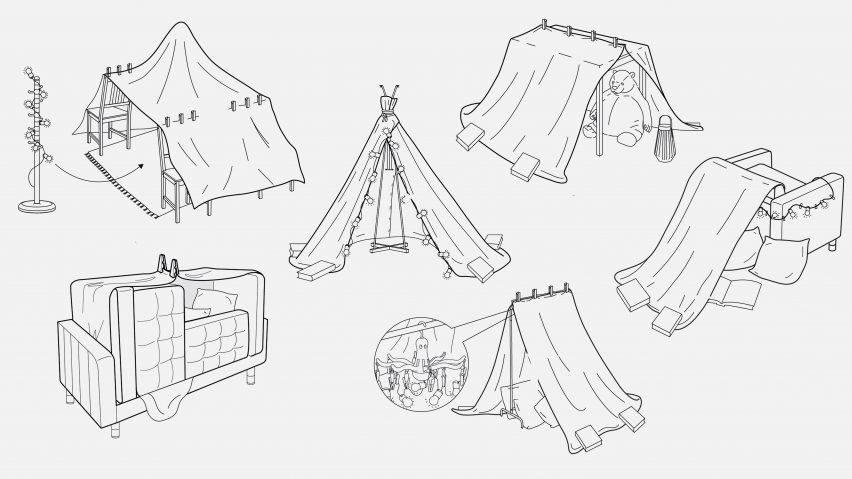Furniture company IKEA has designed six play houses that can be built with its products to entertain children in coronavirus lockdown.
Created by IKEA Russia and creative agency Instinct, the children's forts form part of a campaign to encourage people to remain in their homes during lockdown.
Each play house is illustrated in the style of an IKEA assembly manual and is complete with an equipment list and name that incorporates a Swedish letter.
The six forts take the forms of a variety of dwellings and are named Förtress, Wigwåm, Cåstle, Cåve, Cåmping tent and Höuse.
IKEA and Instinct created the forts to help parents entertain children stuck at home during lockdown.
"#StayHome was a general slogan of this spring," explained Instinct. "Self-isolation and quarantine measures are ongoing. Parents no longer know how else they can entertain their children being stuck inside the four walls," Instinct continued.
"To those who are totally out of all ideas, IKEA Russia offers to build a play house using instruction and things which can be easy found in every home – blankets, bedspreads, chairs, stools, etc."
Although each of the play houses can be built using items found in the house, IKEA has also suggested exact products that could be used to assemble the forts.
The Förtress, for example, is a traditional sofa fort with walls made using the cushions from IKEA's Landskrona and a roof formed of two Nattjasmin sheets. A Mialotta throw and three Valbjörg cushions would provide comfort for the child inside the fort.
The Cåstle, which is made of four Stefan chairs and a Krokig clothes stand wrapped a set of Blötsnö lights supporting Nattjasmin sheets fixed with clothes pegs, is one of the more complex designs.
Simpler forts include the Cåmping tent, which combines a Mulig clothes stand with a Nattjasmin sheet and the Wigwam, which places a sheet over a Tjusig coat stand.
Architects and designers and cultural institutions, including Foster + Partners, Dyson and the V&A, have also all been creating activities for to entertain and educate children in lockdown. The activities include colouring in architecture, designing skyscrapers and building a bridge from spaghetti.

